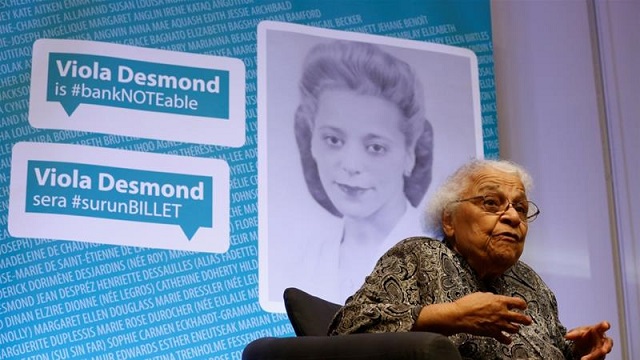Time to end GBV menace

Gender, Charity Ruzvidzo
GBV arises from social, political, economic, cultural and religious practices that subordinate women and subject them to all forms of abuse
As Zimbabwe marks 16 Days of Activism Against Gender Based Violence (GBV), the words of author Obafemi Awolowo, “violence never settles anything right; apart from injuring your own soul, it injures the best cause,” sum up the often unrealised impact of violence, and shows the urgent need to adopt a collaborative approach towards the fight to end GBV.
These collaborative efforts came out, albeit in the usually quiet Madziwa township near Bindura, Mashonaland Central province, when police, health officials, traditional leaders and representatives of a local non-governmental organisation, the Institute for Young Women’s Development (IYWD), came together to discuss gender based violence.
The event, which was also attended by hundreds of villagers from around Madziwa, was marked with presentations from local police who spoke about the Domestic Violence Act and a local health official who talked about the cases of domestic violence that they handled, both of them urging villagers to resort to peaceful means of settling domestic and other disputes.
The discussions also helped define GBV to the rural folk, many of whom are often unaware of the provisions of the law, and the effects of using violence.
Various speakers told the gathering about how forms of GBV include but are not limited to rape, wife or husband abuse, children sexual abuse, trafficking women and girls in most cases for the purposes of sexual exploitation, forced prostitution, unwanted touching, trickery and pressure which may lead to unintended sex.
As the discussions went on, IYWD members collaborated with the police and mounted a roadblock along the Bindura-Mt Darwin Road, where they distributed fliers with anti-GBV messages and educated motorists about the GBV.
This enabled the young women to actively engage with various stakeholders and the ZRP on issues of GBV and ways in which this issue could be curbed.
Memory Kadau, an IYWD member and inspiratory, said their organisation urges the existing policy frameworks to be progressive in addressing GBV.
“There is absolutely a need for continued awareness raising and participation in ways that can prevent GBV. We urge everyone to take responsibility to speak against all forms of violence in our communities,” said Kadau.
She said GBV arises from social, political, economic, cultural and religious practices that subordinate women and subject them to all forms of abuse.
Socialisation also reinforces men’s attitude towards women.
Kadau highlighted that poverty and poor service delivery are some of GBV triggers.
Also present at the function was Zimbabwe Gender Commissioner for Bindura, Sibongile Mauye, who said the commission monitors issues concerning gender equality to ensure gender equality as provided for in the country’s Constitution.
She said they also investigated possible violations of rights relating to gender.
The commission receives and considers complaints from the public and takes such action in regard to the complaints as it considers appropriate.
Mauye said GBV must be stopped as it affects productivity in the country.
“We are receiving more complaints from gender based violence victims. This affects productivity as we find victims and perpetrators wasting time at courts. That time should be used to work and earn a living,” she said.
She said GBV psychologically affects children.
“Children who grow up in a violent environment are also affected. A culture of violence is also cultivated in them. Children are exposed to bad behaviour which they in turn practise,” said Mauye.
Mauye said reported cases of sexual abuse in Madziva revealed that children below the age of 14 were being abused.
“The prevalence of rape issues countrywide is alarming. Children below the age of 14 are being sexually abused here in Madziva. We discovered that some people still have archaic beliefs .They still think if you get sexually involved with a minor, all your sickness will be cured,” she said.
She said such inhuman behaviour towards children is the destruction of a nation.
Also speaking at the same event, a Ministry of Health and Child Care representative encouraged men to stop GBV.
“Women must take advantage of such events to know about their rights. This will enable them to fight against GBV and do away with passivity. Men and women must stop abusing each other. It is everyone’s role to ensure a peaceful environment,” said the ministry’s representative.
Some of the villagers who were in attendance said economic hardships are forcing girls into child marriages.
“There is gold panning in this province. Most girls who come from poor backgrounds end up in relationships or marriages with the gold panners.
These gold panners have no respect for the sanctity of marriage. When they get money they look for other women regardless of being married, this leads to domestic violence,” said Jean Kasukuwere, from Shoni Village.
Mathias Mabika also from Shoni village said men were suffering in silence due to gender stereotypes making them fail to report when abused.
“It is difficult for me to approach the headman or the chief saying I am being abused by my wife. It is embarrassing. Women should know their rightful positions in a marriage, all this violence will end,” he said.
Statistics and media reports indicate that Mashonaland Central had the highest prevalence rate of GBV.
However, according to UNFPA Factsheet on GBV (2016) the percentage of women aged between 15-49 who have experienced physical violence in the last 12 months has significantly decreased in Mashonaland Central, from 23.5 percent in 2010 to 15 percent in 2015.
The decrease can be attributed to the prevention of interventions and the effectiveness of programmes by Government, civil society and other stakeholders.
Sadly, it is disturbing to note that Mashonaland Central still has the highest prevalence rate in child marriages which clearly shows that a lot of work still needs to be done.
Education about GBV calls for collective efforts from both the public and private sector.
On that note let it be everyone’s duty to fight GBV and promote harmonious peaceful environment because peace at home is peace to the world. – Zimpapers Syndication.











Comments